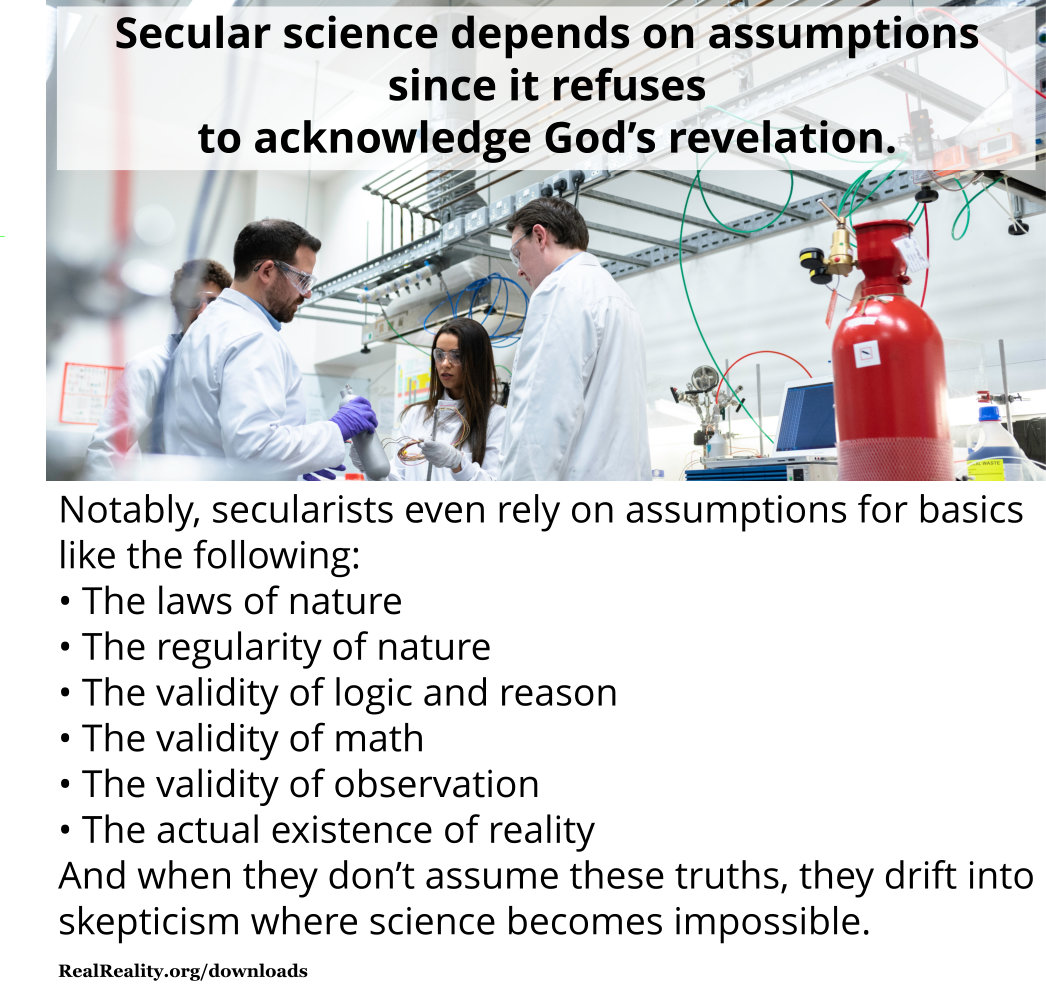
Bill Nye made it clear that the creation-evolution and God-NoGod debate is a debate between assumptions and divine revelation. He scoffed at divine revelation and defended basing all his thinking on assumptions. He said assumptions don’t come “out of whole cloth.” In other words, he implied there’s something behind assumptions. And there is something, but it’s vapor. It’s vacuous thinking behind assumptions. It’s sane to test an idea and say, “Let’s assume, for a moment, that …” That’s what Paul did when he said, “And if Christ be not risen, then is our preaching vain, and your faith is also vain.” However, it’s insane to base conclusions on assumptions as Bill Nye and all evolutionists and atheists do.
(quote from RealReality.org/Real_Faith_and_Reason_Vol_2_-_Scientia.pdf)
Although Bill is defending the use of assumptions here, he doesn’t quite understand where assumptions come from or what they are. He says we get assumptions from previous experience, but his claim isn’t true as we’ve already shown. We get our assumptions out of our worldviews, and we create our worldviews from interpretations of previous experiences. We created those interpretations by filtering our experiences through whatever assumptions we pulled from our worldviews during those experiences. Outside influences and assumptions filter experience to create an interpretation. The interpretation of the experience goes into the worldview rather than the experience itself. But the assumptions came out of the worldview. All of this is circular reasoning.
Outside influences, such as peer pressure, TV brainwashing, distractions, or evil spirits can cloud the experience. However, outside influence is limited by the perceived reality in the worldview. The interpretation is what’s left after the outside influences and assumptions have twisted the interpretation and the worldview has filtered and adjusted the interpretation. After all of that, the interpretation goes into the worldview and may even change the worldview slightly. This process repeats every moment in every situation. That’s why assumptions are totally unreliable.
But Bill said, “they’re making assumptions based on previous experience,” and this statement gives a false impression. It implies that ungodly thinkers pull assumptions from reality, but they don’t pull their assumptions from reality. They pull their assumptions from unreality rather than reality.
(end quote)
















